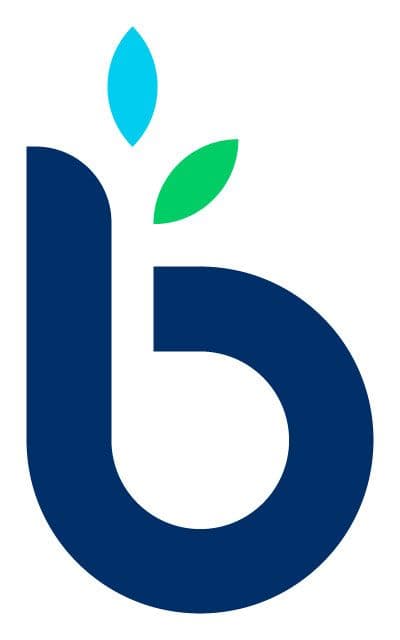Diving into the world of business loans can be overwhelming the first time, especially when you look at all the terms. Knowing key business loan terms is essential to ensuring you work to get the best deal possible. Whether you’re a brand-new company looking to secure your first loan or have an established business needed to expand, learning these terms will help you make smart decisions.
From collateral to interest rates, each term impacts your business’s financial health. We’ll go over the most common terms, give you tips to potentially negotiate better terms, and help you set your business up for success. This way, you'll feel more confident when dealing with lenders and securing the right loan for your business.
Why Knowing Business Loan Terms Matters
It’s essential that every business owner, from those tiny startups to huge corporations, understand business loan terms so you can make sound decisions and get the best financial deals possible.
The Importance of Having Clarity With Any Loan Agreements
Having a good grasp of any type of loan and agreement is essential. When you know what every term means, you’ll avoid pitfalls or misunderstandings. For example, knowing the difference between a variable and fixed interest rate helps you pick a loan that fits your company’s financial goals.
Also, knowing what collateral and amortization is ensures you know the risks of taking the loan and your obligations as the business owner. This clarity lets you plan your budget and keep your finances steady while avoiding surprise costs to keep your company running smoothly.
How Terms Impact Your Business's Financial Health
Your business loan terms are things you have to pay close attention to. Repayment schedules, interest rates, and collateral requirements all factor into your company’s financial stability. For example, a loan with higher interest rates may drive your monthly payments up, impacting your cash flow. In the same vein, strict collateral requirements may put your company at risk if you default.
By knowing exactly what these terms mean, you’ll pick a loan that supports your goals without jeopardizing your financial well-being. You’ll use this knowledge to negotiate better terms and choose a loan that aligns with your company’s ability to repay it.
Common Business Loan Terms Explained
There are several business loan terms you should know before you try to apply for your first loan. They include:
Interest Rates and How They Work
Interest rates are the price you pay for borrowing money, and it’s a percentage of the loan amount. You can get fixed or variable interest rates, and they mean:
- Fixed Interest: This option means that the interest rate you start with won’t change over the life of the loan, giving you predictable payments.
- Variable Interest: These rates will fluctuate over the life of the loan based on market conditions, which makes budgeting a challenge.
The lenders determine your loan’s interest rate based on your business history, credit score, and the loan amount. If you have a solid business track record and a high credit rating, you typically get lower interest rates. By comparing rates from different lenders, you can find the most affordable option for your business.
Loan Principal and Its Significance
The loan’s principal is the initial amount of money you borrow without the interest. For example, if you secure a $50,000 loan, the principal amount is $50,000. This total directly impacts the amount of interest you pay.
Lenders calculate interest based on the loans’ principal, so having a higher principal means higher interest. Also, the amount you pay monthly goes toward paying interest and the principal. So, if you pay down your principal faster, you’ll reduce how much total interest you pay.
Understanding Loan Amortization
This term refers to the process where you spread the payments for your loan out. Each payment splits between the principal and interest. In the early months of repaying the loan, more will go toward the interest. As you pay down the loan, this will slowly switch to paying more on the principal than interest with each payment.
The amortization schedule will help you see how much of each payment you make goes toward the interest versus the principal, and how your loan balance drops as time goes on. It helps you budget and plan your finances because it shows the loan’s long-term cost.
Collateral Requirements
Collateral is something you pledge to your lender that acts as loan security. Common things you can use as collateral include:
- Equipment
- Real estate
- Inventory
- Accounts receivable
This is important as it reduces the lender’s risk for giving you a loan. The lender will be able to take the collateral if you default on the loan, and knowing this term affects your company’s risk exposure. Before you agree to a business loan, make sure you’re comfortable with any collateral requirements the lender has.
Loan Covenants and Conditions
A loan covenant is a condition the lender sets that you have to follow over the life of your loan. They can be:
- Affirmative Covenants: These types of covenants make you do certain things, like submitting ongoing financial statements or maintaining insurance coverage.
- Negative Covenants: These restrict you from doing certain things as long as you have the loan, like selling assets or taking on more debt without getting the lender’s approval.
If you violate either of them, you can face penalties, higher interest rates, or defaulting on your loan. Looking at any conditions the lender attaches to your loan helps you manage your business activities so you keep a good relation with your lender.
Tips for Negotiating Better Loan Terms
Getting the best loan terms can make a big difference in your business's financial health. Some tips to help you negotiate better loan terms include:
Research and Compare Lenders
Arguably one of the most important steps to getting the best loan terms possible is to research the different lenders and compare their rates. Don’t go for the first offer you get, and ensure you take the time to explore your options, including:
- Traditional banks
- Credit unions
- Online lenders
- Alternative lenders
Compare their fees, interest rates, repayment terms, and customer reviews to get leverage you can use to negotiate with any lender you decide to use.
Write Up a Solid Business Plan
A solid business plan will improve your chances of successfully negotiating better terms with your lender. The business plan should highlight the company’s financial projections, business model, and the growth strategies and potential. You want to showcase your ability to repay the loan and effectively manage your finances.
Lenders are more likely to work with you and offer better terms if your company has a strong understanding of your market with solid growth strategies. By presenting a convincing and detailed plan, you give the lender confidence that they want to invest in your company.
Understanding Your Creditworthiness
Your creditworthiness is essential to determining the loan terms the lender offers. Lenders look at your credit history, score, and your company’s financial stability to determine how much of a risk it is to lend to you. Before applying for a loan, you want to:
- Look at your credit score and address any errors you see by disputing them.
- Pay off any outstanding debts.
- Pay your bills on time to avoid late payment remarks.
- Avoid taking on new debt right before you apply for the loan.
Having a higher score with a clean credit history may help you get better interest rates with more favorable terms.
FAQs About Business Loan Terms
Understanding business loan terms can be complex, but knowing the answers to common questions can help. Some frequently asked questions about business loan terms and their answers are:
1. What is the difference between fixed and variable interest rates?
Fixed interest rates don’t change over the life of the loan to give you consistent monthly payments. Variable rates fluctuate based on market conditions, making your payments change.
2. Can you renegotiate your loan terms?
It’s possible to renegotiate your loan terms. For example, if you find better terms elsewhere or you get into a better financial situation, you can approach your lender and ask about modifying your loan agreement.
3. What happens if you default on a loan?
Defaulting on your loan means you didn’t meet the repayment terms. It can lead to huge consequences, like credit score damage, legal actions, and the lender taking any collateral. If you have payment difficulties, talk to your lender and explore solutions.
4. How can you improve your loan terms?
Improving your loan terms is possible if you boost your creditworthiness, keep a solid business plan, and build a strong relationship with your lender. Pay off your existing debts and show steady business growth to help negotiate better interest rates and better loan conditions.
Get Expert Advice on Business Loan Terms
If you have questions about business loan terms or need help finding the right loan for your business, we're here to help. At BusinessLoans.com, our team of experts is ready to guide you through the complexities of loan agreements and help ensure you get the best terms.
Whether you need clarification on specific terms or want personalized advice on loan options, we've got you covered. Contact us today to speak with one of our knowledgeable advisors and take the next step towards your business's financial success.


